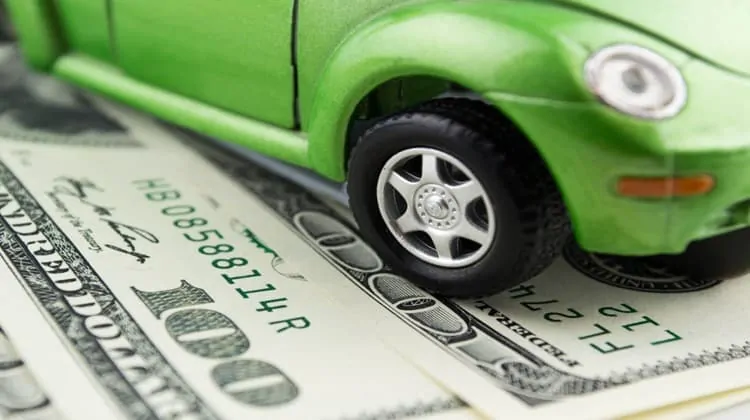THIS POST MAY CONTAIN AFFILIATE LINKS. PLEASE SEE MY DISCLOSURES FOR MORE INFORMATION
We all can agree that cars make our lives easy, and commuting less stressful.
Great cars have become more affordable and affordable cars have become great, which has made buying a car easier for many.
However, maintaining a car is a whole different story.
It is expensive, and if your car is not insured, then you might need to come up with ingenuous ways to get it fixed on your own.
So getting the right car insurance is very important, and so is knowing about them.
The car insurance market is inundated with different types of policies, coverage, add-ons, etc.
You’ll need to sit down and study every one of them to know exactly what they offer.
Some insurance coverage provides roadside assistance, some add-ons give engine protection, while some insurance policies don’t offer anything extra.
There are three major types of car insurance policies that every insurance company in the US offers:
- Liability insurance coverage
- Collision coverage
- Comprehensive insurance coverage
This article will focus on the third one.
What is comprehensive insurance coverage, what does it cover, how does it work, and should you get one for yourself?
Let’s begin.
Table of Contents
Comprehensive Car Insurance For Cars
What Is Comprehensive Insurance Coverage?
To understand what comprehensive insurance is, we need to briefly understand what the other two auto insurance cover.
All three insurance policies cover any accidental damage to your or other cars. But there are some slight differences in the way they provide the coverage.
Liability Coverage
Liability insurance coverage is the auto insurance policy that covers the property damage (which includes vehicles) and bodily damage of anyone who is involved in an accident that is your fault.
So if you hit someone else’s car, or ram into someone’s backyard and mess up their garden, liability coverage will pay for these damages.
You cannot use this insurance coverage to cover your car’s damages.
Collision Insurance
Collision insurance covers all the damages to your car in the case of an accident that is your fault.
So imagine a liability insurance policy but for your car.
To claim this policy, you need to be in an accident.
Any damage to your car, while it is parked, will not be covered under this policy.
Comprehensive Insurance
And this brings us to comprehensive insurance coverage.
What happens if your car is parked perfectly and another car barges in and rear-ends your car, just damaging it beyond recognition?
Collision coverage won’t pay for it.
This is what a comprehensive insurance policy covers.
Any damage to your car, while it is parked, will be covered by comprehensive insurance.
It is not just limited to rash, speeding drivers hitting your car.
The reason why it is called “comprehensive coverage” is that it covers almost all the possible ways your car can get damaged, including almost all the natural calamities.
Comprehensive insurance covers:
- Theft
- Natural calamities such as earthquakes, hurricanes, hailstorms, etc
- General accidents such as falling trees, projectiles, etc
- Riot, vandalism damages
- Damage due to animals
- Fire
- Broken windshield
So any accident that is not your fault will be covered by comprehensive coverage.
Do note that comprehensive insurance is only valid if your vehicle was parked and not being driven.
Cost Of Comprehensive Insurance Policy
Compared to liability and collision insurance coverage, comprehensive coverage can be bought for almost a third of the price.
Where the other two policies cost upwards of a thousand dollars, comprehensive coverage costs $300-400 on average.
This price can be brought down even further if you choose some of the cheapest full coverage car insurance companies.
Why does comprehensive coverage cost so less compared to the other two insurance policies?
This is because the possibility of your car getting damaged in an earthquake or fire is very low.
This means lower risk, hence the lower price.
But don’t let this low-risk factor discourage you from getting comprehensive insurance coverage.
While the risks are low, there is always a chance of your car getting damaged due to these incidents.
Who Is Comprehensive Insurance For?
Ideally, comprehensive insurance is for everyone who owns and parks a vehicle.
While the possibility of your car getting destroyed in a fire is quite low, it is never zero.
This means that spending around $300 or so in a year is worth it if it covers something that can make your car useless.
Another great benefit of comprehensive insurance is it covers theft.
Car thefts are common, and even if you park your car in an area with low crime rates, having your car insured against theft is the smart thing to do.
Wrapping Up
In conclusion, even if your car is kept in a safe and sound place, natural calamities always come uninvited.
Being prepared with comprehensive insurance would be the smartest thing to do.
Similarly, the price of comprehensive coverage will increase if the area you live in or park the vehicle has higher rates of crime, theft, accidents, vadalism, etc.
But if the rates are high, then you should definitely get comprehensive coverage to ensure your car remains safe.
- Related: Discover the best beater cars to buy
- Related: Learn how to save money on car expenses


